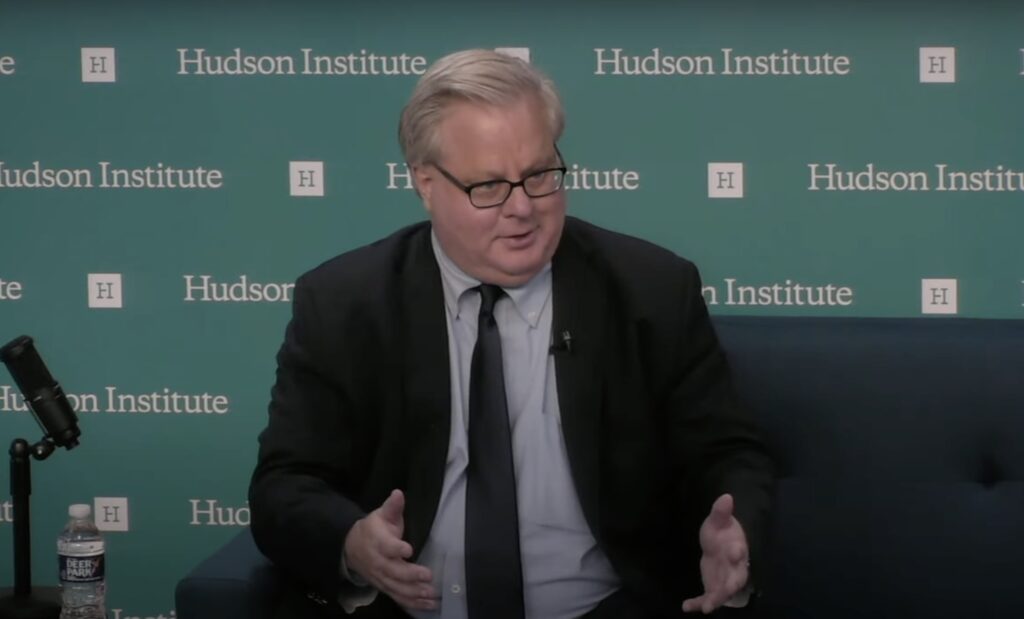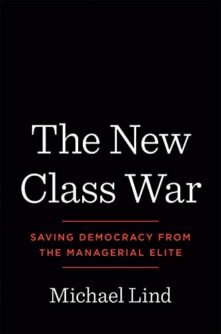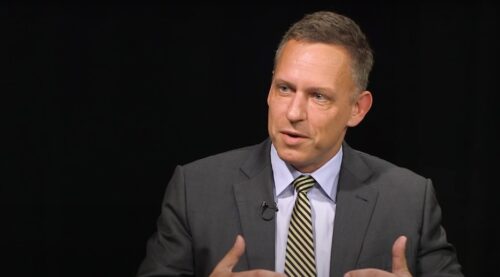The professor, writer, and commentator talks to Michael E. Hartmann and Daniel P. Schmidt about the politicization of philanthropy and advises grantmakers to have a long-term outlook and consider supporting membership organizations and “extra-parliamentary institutions.”
As we’ve noted here, Michael Lind’s most-recent book, The New Class War: Saving Democracy From the Managerial Elite, explicitly includes foundations within its harshly criticized “managerial elite.”
“Scholars like Robert D. Putnam have documented the collapse of the once-flourishing network of American mass-membership civic federations like United Way and the American Legion,” according to Lind in the book. “Overall, the shift of the center of gravity from local chapter-based member associations and church congregations to foundations, foundation-funded nonprofits, and universities represents a transfer of civic and cultural influence away from ordinary people upward to the managerial elite.”
Lind currently is a professor of practice at the University of Texas at Austin’s Lyndon B. Johnson School of Public Affairs. He previously has authored more than 15 nonfiction, fiction, poetry, and children’s books, and he contributes widely to the public discourse with articles in both the academic and popular press, including as a Tablet columnist.
During his wide-ranging career, the clear—and clearly independent—thinker also co-founded the New America think tank and has worked for neoconservative editor Irving Kristol and on the staffs of Harper’s, The New Republic, The New Yorker, and Salon.
Lind was kind enough to briefly expand upon his thoughts about philanthropy with us last week. In the first part of our discussion, which is here, we talk about philanthropy and nonprofitdom as part of the managerial elite’s threat to democracy, the difference between the overclass and the upper class, and the proper relationship between grantmaking and politics.
The just more than 14-minute video below is the second part of our discussion, during which Lind further considers the politicization of philanthropy and advises grantmakers to have a long-term outlook and support membership organizations and “extra-parliamentary institutions.”
“Now, as in the past, the philanthropic money goes overwhelmingly to the left. That’s just always been the case,” according to Lind. “At this stage, what was called the ‘adversary culture’ has become a monoculture.”
In the right’s response, “there’s a trade-off between agenda-promoting and institution-building,” he adds, and both are needed. There’s a long-term game and a short-term game. For short-term agenda-promoting, “that’s why we have political parties.”
For long-term institution-building, “I think the nonprofit sector can play a role there. The political parties cannot,” Lind says. “The parties have to win the next election. That’s what they’re focused on. They’re not thinking about higher education in 2035 or the basic family policies in the welfare state that you want in the 2040s and 2050s.”
He advises “a different strategy for donors now than in the 1960s, ’70s, and ’80s.” The goal of supporting the familiar conservative magazines, journals, and entire intellectual infrastructure
was to show the flag in elite institutions. It’s what Bill Buckley did so brilliantly. … It was all about getting establishment credibility. That’s over now. There’s nothing that center-right people can do to prevent them[selves] from being purged. The left is no longer open to debate.
…
At this point, the enemies of conservatism own every institution in society. … The only institution in which conservatives have some voice are in legislatures—state legislatures and the Congress. …
I always feel like I’m contradicting myself saying we shouldn’t be too partisan, but you should build institutions. Historically, movements succeed with what Bernard Crick—the great British political philosopher—called “extra-parliamentary institutions.”
Separate and apart from political parties, extra-parliamentary institutions help mobilize citizens in opposition to or support of public or social ideals.
“The reason these extra-parliamentary institutions are important is because,” Lind explains, they’re “playing the long game. … If they lose, they’re not going to change their tune.”
In The New Class War, Lind tells us, he writes about how “the disempowerment of much of the working class in the U.S. comes from the disintegration of these intermediate organizations—some of which conservatives like, like churches, and some of which they don’t necessarily like, like trade unions.”
Conservatives and conservative philanthropy “can still try to influence debate,” he concludes, but they “need to build up particularly city-level or neighborhood-level organizations” that try to solve problems like these groups do.







